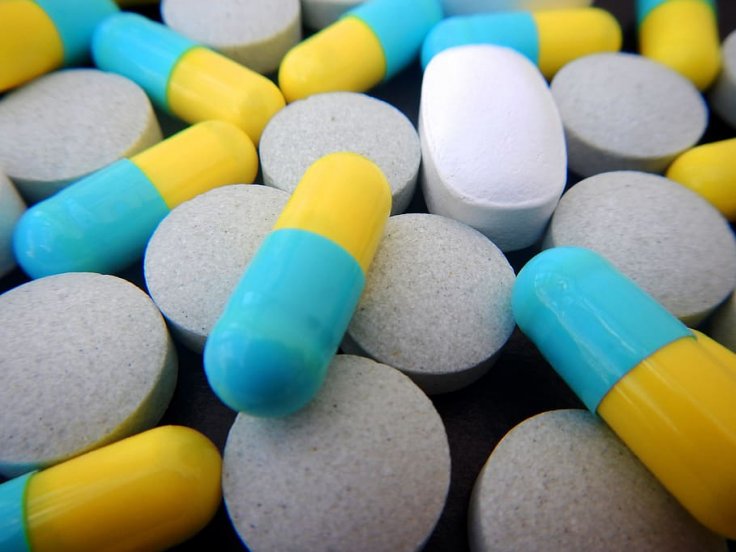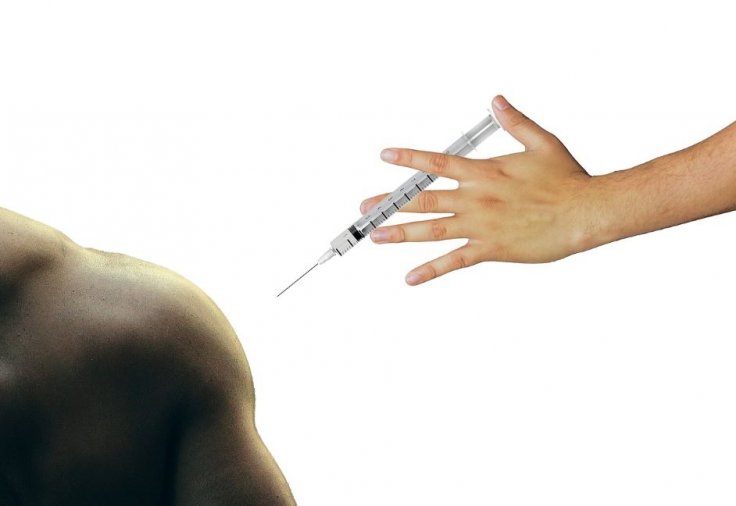As the number of novel coronavirus cases continues to rise at a steady rate across the world, scientists are scrambling to formulate an effective treatment regimen against the disease and save lives. Offering a glimmer of hope, a new study by researchers from Hong Kong claims that a combination of three antiviral drugs can improve recovery in patients with mild to moderate COVID-19.
The study conducted by researchers from the University of Hong Kong and six public hospitals in Hong Kong, found that a cocktail of three antiviral drugs—lopinavir-ritonavir, ribavirin and interferon beta-1b—was effective in boosting recovery in patients if it is used to treat them as soon as their symptoms appeared.
"Our trial demonstrates that early treatment of mild to moderate Covid-19 with a triple combination of antiviral drugs may rapidly suppress the amount of virus in a patient's body," said Yuen Kwok-yung, lead author of the study, to AFP

An antiviral cocktail
The drugs that form a part of the cocktail are used to treat other diseases and have been repurposed for the treatment of COVID-19. Anti-retroviral combination lopinavir-ritonavir—which is sold under the brand name Kaletra—is used to treat HIV and is consumed orally. Another oral antiviral medication, ribavirin, which is prescribed to individuals suffering from Hepatitis C, is also a part of the composite.
The last drug in the cocktail is the injectable interferon beta-1b, which used to alleviate multiple sclerosis. Some scientists believe that the immune system may receive a boost and tackle the coronavirus due to the cytokine.
A randomized trial
For the study—a preliminary Phase 2 trial—the researchers screened 144 COVID-19 patients between 10 February and 20 March 2020. Of these, 17 patients were excluded as 9 did not satisfy inclusion criteria and eight patients refused the treatment. Thus, 127 patients—68 men and 59 women—were selected for the trial. The median age of the patients was 52 years.

Next, 89 patients were randomly assigned to the group receiving the 3-drug antiviral combination (onset of symptoms was less than 7 days in 52 patients and over 7 days in 34). In the comparison group, 41 were assigned to receive only lopinavir-ritonavir (onset of symptoms was less than 7 days in 24 patients and over 7 days in 17). One patient in the second group had to discontinue the treatment on the seventh day of the trial due to adverse reactions.
Three-drug combination worked wonders
The results of the trial were nothing short of promising. Among the patients who received the three-drug combination within seven days of manifesting symptoms, the viral shedding was found to reduce earlier than patients in the comparison group. This was 7 days on average when compared to the average of 12-days in the control group.
It was also found that patients receiving the triple-drug cocktail appeared to recover faster and stayed in the hospital for a significantly shorter period than the comparison group. Among those receiving the experimental combination, the alleviation of symptoms was found in an average of four days. However, this duration was an average of eight days in the control group.

In a commentary accompanying the study, said Dr. Sarah Shalhoub, an infectious disease specialist at Western University in Ontario, Canada wrote, "This is good news. It tells us that patients get better faster, and the time they need to be hospitalized is shorter, and their viral shedding is of shorter duration."
Some limitations exist
While the study did offer a potential treatment option, it is not without limitations. The authors admit that it was an "open label" study, which means that patients and doctors were aware of the drugs being administered. Also, a placebo was not employed.
Additionally, interferon was not given to patients who were admitted to the hospital seven or more days after exhibiting symptoms of the study. This was due to the fear that it could trigger an inflammatory response in them. Nevertheless, they were included in the combination group, which served as a limitation of the study.
Despite the positive results, Dr. Shalhoub cautioned that its reproduction among patients who are in the Intensive Care or require oxygen may not be the same. She added, "We can't extrapolate from these results and assume they would apply to patients on ventilators or those who are expected to go on a ventilator soon."









